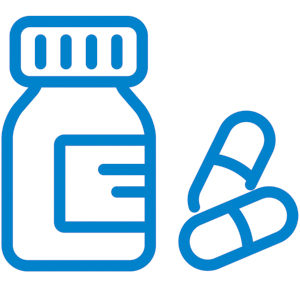Living with Uterine Cancer
Living with uterine cancer
At MRO, we understand that there’s more to recovery than medical treatment. Just as cancer affects your physical health, it can bring up a wide range of emotions you’re not used to dealing with. This is particularly true with gynecologic cancers.
“Being a cancer survivor has helped me be a better radiation therapist and a source of tips for patients in managing side effects. I’ve learned gratitude from my patients and from my own journey. I don’t take anything for granted, I don’t procrastinate on going for my goals anymore, and I’m thankful every day.”
Julie | MRO Radiation Therapist and Cancer Survivor
-

Living with uterine cancer can mean changes in your lifestyle and finding the quality of life that suits you best. And while radiation therapy itself may be painless, it impacts your body in ways that you can’t always see. During treatment, there are ways to help your body stay strong:
It’s typical to need extra rest. So, listen to your body, nap when you need to and get as much sleep at night as you can. Don’t push yourself too hard.
-

Eat a healthy diet and drink plenty of fluids.
-

Treat your skin in the treatment area with care. Clean the area with warm water and mild soap, avoid hot or cold packs, and check with your MRO care team before using lotions or ointments.
-

If you continue to have pain after radiation therapy, you can use an over-the-counter pain medicine. If you continue to have severe pain, contact your MRO care team and ask about medications or other methods of relief.
Talk to your doctor about any medications or supplements you are taking to make sure they are safe to use during treatment.
-

Follow your doctor’s orders and don’t be afraid to ask questions.
-

Find a support group or seek out help to cope with the stress of your cancer diagnosis and treatment.
Life After Treatment
 After you’ve completed treatment, you’ll have follow-up visits with your MRO care team, especially in the first few months after treatment, to make sure there is no progression or recurrence. During this time, it’s important to report any new symptoms to your doctor right away, so the cause can be found and treated.
After you’ve completed treatment, you’ll have follow-up visits with your MRO care team, especially in the first few months after treatment, to make sure there is no progression or recurrence. During this time, it’s important to report any new symptoms to your doctor right away, so the cause can be found and treated.
For more information, visit our resources page.